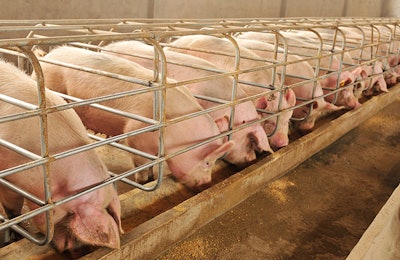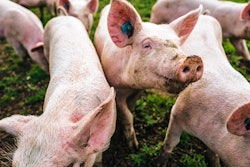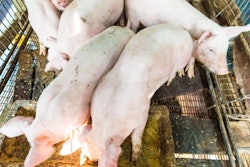
Arginine supplements prevent intestinal damage in pigs during heat stress in new trial
Supplementing pig diets with arginine during hot weather may help prevent permanent intestinal damage caused by heat stress, according to a new study from the Autonomous University of Baja California.
According to the study, published in the September edition of the Journal of Animal Science, pigs fed an experimental diet containing an additional .16% arginine had healthier intestines compared to pigs fed less arginine after being exposed to temperatures over 29.6-39.4 degrees Celsius (85-103 degrees Fahrenheit) for 21 days.
Although work on the topic is still ongoing, Miguel Cervantes Ramirez, a researcher at the Autonomous University of Baja California, said arginine may be able to prevent some of the intestinal damage that can be caused by heat stress. When pigs are exposed to temperatures over 32 degrees Celsius (89.6 degrees Fahrenheit), the animals begin to increase blood flow to the skin and extremities in order to eliminate excess body heat. However, this has the effect of reducing blood flow to the internal organs, and the resulting lack of oxygen and nutrients can cause irreversible damage. Heat stress also increases the presence of reactive oxygen molecules in the body, providing another potential source of damage to the intestine.
Arginine, Ramirez said, may function as an antioxidant, removing the damaging molecules, or it might improve blood flow by dilating the blood vessels, allowing the animal to cool itself more effectively.
Arginine isn’t the only nutrient that functions this way in animal cells, Ramirez said. Other amino acids including methionine, citrulline, and ornithine could work in a similar fashion, as could vitamin E, choline, betaine, and several kinds of antioxidants.
More research and attention to potential remedies for heat stress is necessary, Ramirez said, as climate change continues to impact livestock production around the world.
“Global warming is a real thing,” he said, “and we better be prepared to protect against the heat waves that we believe will become a constant threat not only for animals, but also for humans.”















